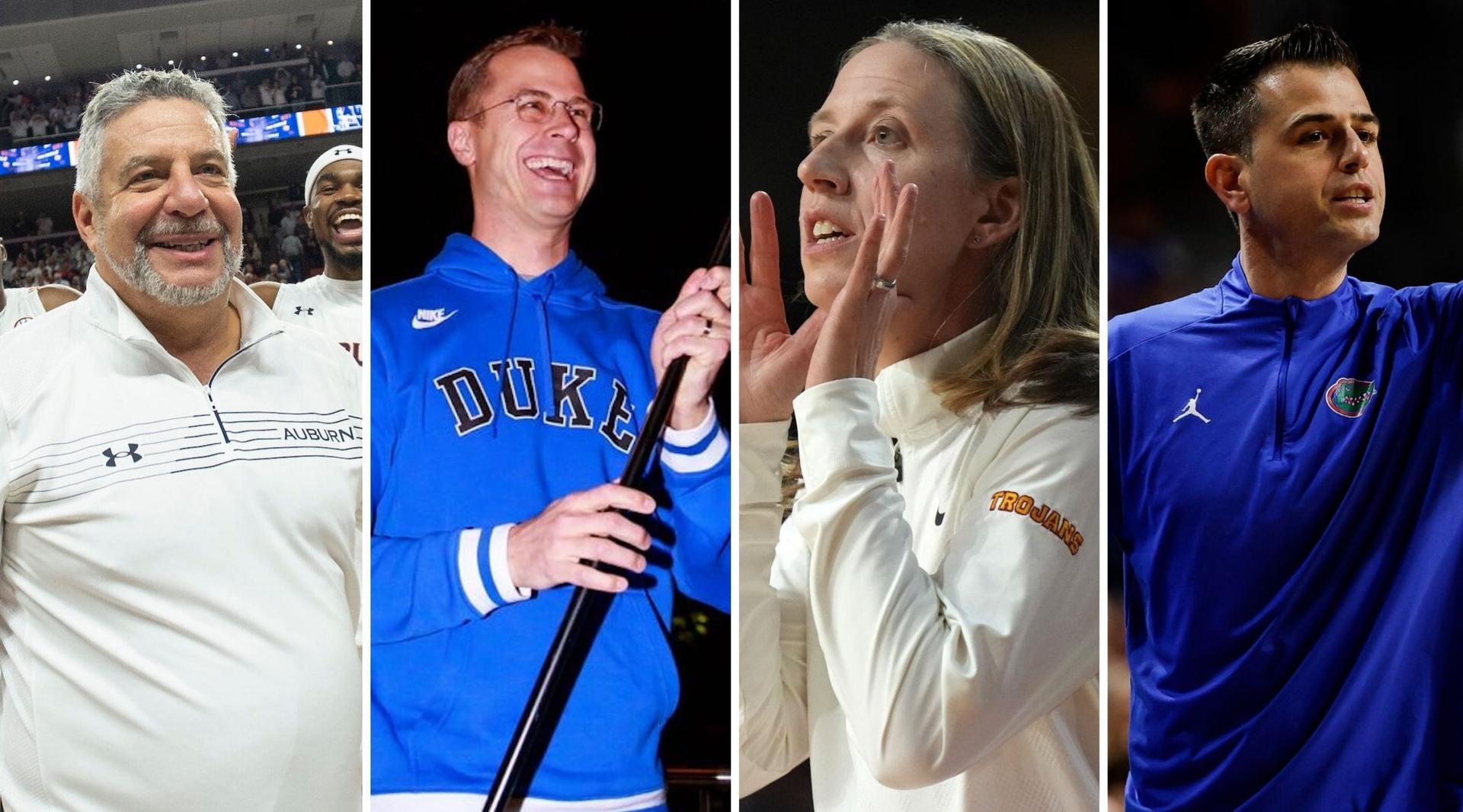Here’s the timeline of how women’s wrestling became the 91st NCAA championship sport

The NCAA has officially added women’s wrestling as the 91st official championship sport following a vote from all three divisions at the 2025 annual convention. Adding new championship sports is a complex process though and requires a commitment from NCAA administrators as well as key activists and leaders in the sport. Here are a few of the most notable moments in the timeline of women’s NCAA wrestling’s path to championship status.
1993: The University of Minnesota-Morris becomes the first varsity collegiate women’s wrestling program
The National Wrestling Hall of Fame recognizes the University of Minnesota-Morris as the first collegiate women’s wrestling program — this team competed for ten years in the US against Canadian teams before the program was cut due to budget constraints. The men’s wrestling program was also shut down during this same period. The University announced that Minnesota-Morris was the only university in Minnesota that sponsored women’s wrestling at the time that the program was cut.
Dec. 7, 2017: Presbyterian College becomes the first Division I school to offer women’s wrestling
Nearly 25 years after the University of Minnesota-Morris program shut down, Presbyterian College in South Carolina stepped up to make some history of its own. The school announced on Dec. 7, 201,7 that the university would be adding both a men’s and women’s wrestling program to the athletic department, with the women’s program becoming the first Division I team in the U.S. and the men’s program joining the Southern Conference.
PC First Division I School to Add Women’s Wrestling
RELEASE: https://t.co/5xKryVWML9#GoBlueHose pic.twitter.com/zL4C0KMA5u
— PC Women’s Wrestling (@BlueHoseWWR) December 7, 2017
The women’s program was also the 39th overall women’s college wrestling team in the country and competed in the Women’s Collegiate Wrestling Association (WCWA). In its inaugural 2019-2020 season, the Blue Hose went 6-6, but the team has improved and is 10-3 on the year this season.
June 3, 2019: Acrobatics and tumbling, women’s wrestling get backing to join NCAA Emerging Sports
Women’s wrestling’s progression toward a championship sport took another step forward in 2019 when the NCAA proposed adding women’s wrestling (and acrobatics and tumbling) to the Emerging Sports for Women program. This put these programs on a path toward advancement with NCAA backing and formalized their growth and support within the NCAA system.
Much of the growth of women’s wrestling at the collegiate level is a product of the efforts of Wrestle Like A Girl and USA Wrestling. In 2019, as wrestling was earning consideration for the Emerging Sports program, there were 23 active women’s wrestling programs at NCAA schools across the country.
June 17, 2020: Acrobatics and tumbling, women’s wrestling added to NCAA Emerging Sports for Women program
This process of adding women’s wrestling to the emerging sport program became official one year later, in June 2020. The NCAA’s ‘Emerging Sports for Women’ label meant that schools could now offer “sport-sponsorship options” for athletes and use recruitment for the sport as a way to boost overall enrollment and their respective colleges. This vote also put women’s wrestling a new goal: if over 40 schools sponsored varsity women’s wrestling programs, the sport could move into championship status consideration. Previous sports that advanced through the Emerging Sports for Women program included beach volleyball, rowing, ice hockey, water polo and bowling.
Sept. 21, 2021: Iowa announces the addition of Division I women’s wrestling
Women’s wrestling was growing as part of the Emerging Sport for Women program, but the sport was still waiting for a Power 5 program to take the initiative to sponsor the first program. Iowa became that program on Sept. 21, 2021. As one of the powerhouse programs in men’s wrestling, the University of Iowa was a school with a strong wrestling culture and a committed fan base — adding women’s wrestling was a logical, smart decision for the university. The background of this decision is a little more complex though, with Iowa making the choice to add the team following Title IX issues that emerged after the athletic department announced a decision to cut the women’s swim team, a decision that has since been reversed, and required the school to add another women’s sports team.
Adding women’s wrestling has brought great attention and glory to the Hawkeyes though, as the team won its first 024 National Collegiate Women’s Wrestling title last year and just won the Solider Salute for the second season. The team also put its first athlete on the podium at the Olympics this year too with transfer athlete Kennedy Blades winning silver at 76kg.
Oct. 18, 2023: Women’s college wrestling on track for championship consideration
Women’s wrestling only continued to grow after Iowa’s announcement, both in terms of the number of programs and with regard to general momentum toward championship status. The sport eclipsed the 40-school threshold to become a championship sport and led the way amongst the six other sports in the Emerging Sport for Women program. A total of 51 teams sponsored programs with an average roster size of 15 athletes. The growth of the sport generated praise from the chair of the Committee on Women’s Athletics, Ragean Hill, who called women’s wrestling’s progression “exceptional” and a “model practice on how to move the needle forward.”
Feb. 7, 2024: Women’s wrestling projected to become NCAA championship in 2026
Women’s wrestling was clearly on the championship path in the 2020s, but its potential to truly become the 91st championship sport became even more real on Feb. 7, 2024, when the NCAA Committee on Women’s Athletics officially recommended that all three divisions vote in favor of creating a national collegiate women’s wrestling championship.
ICYMI 🚨
Today women’s wrestling took a big step toward becoming the 91st NCAA championship sport, with its projected first NCAA championship occurring in winter 2026.#NCAAWrestling x @ShannonScovel pic.twitter.com/jqo32Ng8QC
— NCAA Wrestling (@NCAAWrestling) February 8, 2024
This announcement gave each division a little over a year to prepare a proposal and a vote in 2025 on championship status. Women’s wrestling was also given a projected timeline for what a championship experience might look like with December 2026 set as the targeted championship date.
Nov. 22, 2024: Delaware State becomes the first HBCU to offer women’s wrestling
Delaware State became the latest school to make women’s wrestling history when it announced the development of its varsity program, the first HBCU in the country to sponsor a women’s wrestling program. The creation of the team was supported by a $1.25 million gift from the HBCU wrestling organization, a group formed in 2021 committed to bringing back wrestling programs to HBCUs.
HBCU WRESTLING: Q&A with Morgan State head coach Kenny Monday
Delaware State joined Morgan State as an HBCU sponsoring wrestling, as Morgan State launched its men’s program in 2023. The team will compete in its first season in 2025-2026.
Jan. 17, 2025: NCAA adds women’s wrestling as 91st NCAA championship
Women’s wrestling officially became the 91st championship sport on Jan. 17, 2025, over 30 years after the University of Minnesota-Morris sponsored the first program. This distinction will allow the NCAA to host a women’s wrestling national championship for athletes across all three divisions. Championship status has long been a goal for women’s wrestling at the collegiate level — this distinction will only continue to move the sport forward.
Wrestling into history 🏆#NCAAWrestling x @NCAAWrestling pic.twitter.com/xtt9TU1743
— NCAA (@NCAA) January 17, 2025
By growing the college pipeline, the NCAA not only creates more potential high-level experiences and opportunities for high school athletes, but it also strengthens the Olympic development opportunities. Four women have won Olympic gold for the United States, three of whom competed for college programs. This number will only be expected to grow in the future.
This list does not capture every decision, every activist and every athlete who worked to make this championship status a reality, nor could it possibly describe all the incremental steps — like every time a women’s division was added to a national tournament — that occurred over the last three decades. The NCAA’s decision to solidify women’s wrestling as a championship sport is more than these select moments, but these key milestones do show just how far the sport has come and what this championship status means for continued growth.
Related
Jets complete interview with Jeff Hafley
The Jets have completed their 13th head coaching interview. The team announced that they wrapped up their interview with Pa
Los Angeles stadiums host fire relief events with donations from…
Los Angeles area professional sports teams got in on fire relief in a big way, hosting three stadium sites where fire victims can pick up donated goods. On Fri
Patriots’ pass-rush specialist Joe Kim moves on
With a new head coach comes plenty of changes to the coaching staff. The new staff in New England won’t include pass-rush













